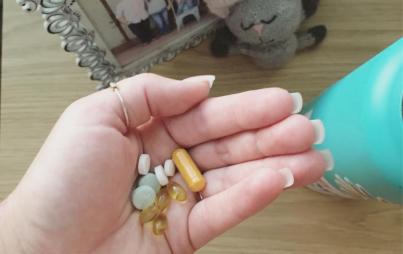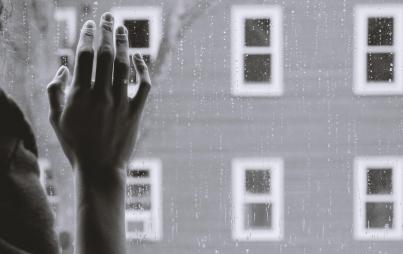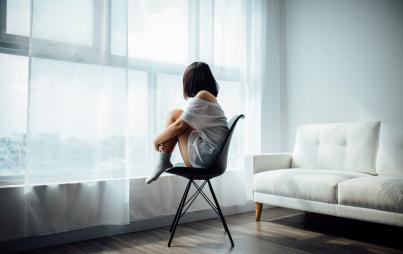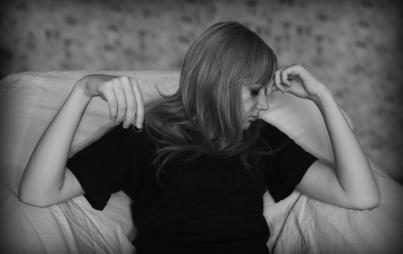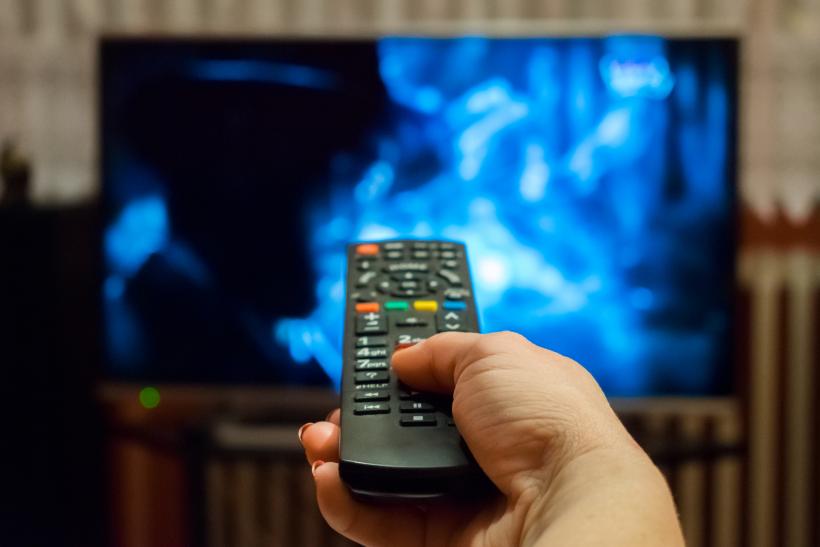
This one small act of including a character with clinical depression is one way of opening the door to much larger conversations.
For the first time, I find myself deeply identifying with a television character.
There were moments in the past where I felt my personality matched that of a cartoon teenager named Tina Belcher from Bob’s Burgers, and my time in high school was a reflection of the nerdy Seth Cohen from The O.C. (an obsession with sad indie rock included). But this connection is more meaningful.
After ignoring everyone on Twitter talking about it, I finally watched FXX’s You’re the Worst. Before viewing, I assumed the show was a comedic take on modern day romance and adulthood, but what I found was an honest, emotional story of a central character’s battle with clinical depression.
During all my years of binge-watching, this is the first time I see my own struggles with mental illness accurately mirrored on television.
For four seasons, I’ve watched as actress Aya Cash brings to life the character of Gretchen Cutler, and each episode has brought me a sense of comfort in my ongoing mental illness.
For ten years I’ve lived with depression and anxiety. I know what it’s like to go through the cycles of feeling at my best to suddenly being at my worst. I’ve realized that despite my best efforts and even with the help of doctors, for now, I’ll continue to have days where I can do nothing but wait for it to pass.
Mental illness isn’t pretty, and I’ve long felt disappointed at the lack of television depictions of the sickness in all its forms. When series do try to broach the subject of a character with mental illness it feels half-hearted. It’s easy for a show to simply label someone as being sad and then move forward. We can watch as characters enter therapy or listen in as they mention treatment in passing, but I can’t recall the last time a character with depression really moved me. I don’t remember ever watching someone on television and thinking they get it, that’s me — until now.
You’re the Worst is tackling depression on television with grace, understanding, and compassion.
It isn’t until the second season of You’re the Worst that Cutler’s past with mental illness is revealed. For much of the first season, she’s depicted as fearless, driven and independent, working with some of the top artists in the music industry. Aside from a messy apartment, it seems that she has it all together.
Her biting sense of humor, impeccable fashion taste, and decision to let no romance control her destiny make her instantly memorable and seemingly unstoppable. Viewers are led to believe that she’s a total success, unplagued by any struggles until a surprising reveal. Up until the second season, Cutler does an excellent job of hiding her depression — her character portraying a sense of total satisfaction and happiness with life.
But, much like my own strategy with mental illness, Cutler purposefully keeps herself busy and active, avoiding the process of thinking or feeling by avoiding the act of stopping.
Eventually, that perfect world and the careful facade of happiness comes crumbling down, and we begin to see who this character is. Viewers watch as the show starts the process of purposefully changing a carefully crafted narrative, and Cutler begins sneaking away to spend nights sobbing in her car. She’s forced to contend with mental illness while living with a partner that she loves and the moment she comes to confront the return of her depression broke my heart.
You Might Also Like: I Turn To The TV Show Friends When I'm Depressed
Watching this character spend the night sobbing in her car immediately pulled at every string in my heart. When my depression and anxiety were at their worst, I can remember how often I would sneak away to cry. I spent lunch breaks during work driving to remote parking lots to cry in peace, and at night I fell asleep with tears streaming down my cheeks, hoping that tomorrow would be better.
Depression causes me to feel totally alone, and though I want the help of others, I sometimes still struggle with what to say or how to ask. I crave the warmth of friendship, but there are also times I want to be left alone. Watching Cutler leave her sleeping boyfriend behind to cry in peace resonated heavily with me and I felt as if the show was saying everything about the illness that I can’t.
Each episode of the season delves deeper into Cutler’s contention with depression, and in one particularly moving chapter, the character reaches her lowest point. In the episode, her partner is preparing for a visit from his family, while Cutler is unable to leave the bed, to change clothes, to interact with others, or help in any way.
I still remember watching Cash act out a deep depressive state — her character laying motionless and still, staring out a window, not responding to anyone. Her worst mirrored my worst, reminding me of the days I prefer to stay indoors or under covers, consuming television so I can cloud my mind with something else. Watching this character struggle to keep it all together brought tears to my eyes because I finally saw myself on television and it made me feel a little less alone.
This one small act of including a character with clinical depression is one way of opening the door to much larger conversations.
I’d like to believe that maybe someone who never understood the devastating effects of mental illness may gain a more accurate picture through the series. And for those of us who have a mental illness, the show provides a small sense of reassurance, validating our experience in a meaningful way.
You’re the Worst doesn’t end Cutler’s story there, though. With her depression out in the open, the show continues to seamlessly weave the illness into future storylines, following Cutler as she attempts to get back on track. The comedic heart of the show is still a central focus, but we’re also able to see as Cutler begins taking medication and enters into a therapy routine. While the character and life of Cutler are fictional, each inclusion of her battle with depression is filling me with hope. It’s comforting to watch a television series and be reminded that I’m not the only out there with a mental illness. You’re the Worst is more than a television show, it’s a sign of hope and change in Hollywood and a reminder to all those who have a mental illness that our voices are heard and our fight matters.



